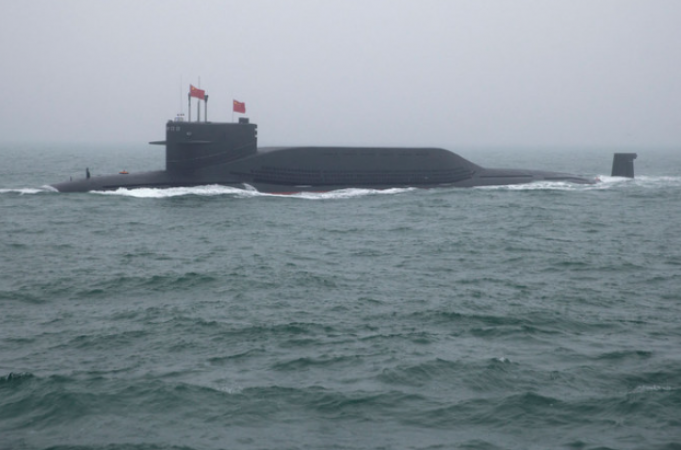
Beijing: According to experts, China is moving forward with the largest-ever expansion of its nuclear arsenal as it modernises the atomic deterrent in preparation for potential future conflicts with the United States.
China is considered to have a small nuclear arsenal compared to the US and Russia, with only 350 nuclear warheads in its arsenal, according to the SIPRI think tank.
However, it is expanding quickly and, according to a Pentagon estimate released in November, could have 1,500 warheads by 2035.
Also Read: During a UN event, young Arabs talk about empowerment, employment, and education
"China appears to no longer be satisfied with just a few hundred nuclear weapons to ensure its security," Matt Korda of the Federation of American Scientists told AFP.
China has been content to maintain a relatively small arsenal since conducting its first nuclear test in 1964 and has vowed never to be the first country to use nuclear weapons in a conflict.
However, under President Xi Jinping, it has recently started a massive military modernization drive that includes upgrading its nuclear weapons to be able to counterattack if deterrence is unsuccessful as well as deter enemies.
According to David Logan, an assistant professor at the US Naval War College, "China is expanding and modernising its nuclear forces in the most significant manner in the history of the country."
This entails upgrading the capability to deliver warheads using a nuclear triad of missiles, aircraft, and submarines in addition to increasing warhead production.
According to Eric Heginbotham, Principal Research Scientist at MIT's Centre for International Studies, "the changes that are taking place or under way are very significant" and "will turn China from a state that has a nuclear retaliatory capability to one that is that third major nuclear power in the world."
The big nuclear powers will have to take into account two potential nuclear rivals for the first time in history, and this will have an impact on nuclear planning and stability worldwide.
According to the Pentagon's report from a year ago, China is "rapidly" constructing more than 300 silos to serve as launch pads for intercontinental ballistic missiles.
The Chinese government has emphasised that it maintains "its nuclear force at the lowest level required for national security."
Additionally, in a statement released last month with Vladimir Putin, the leader of Russia, Xi said that nuclear war "must never be unleashed."
China spent $11.7 billion on its nuclear programme in 2021, according to the International Campaign to Abolish Nuclear Weapons, less than a third of what was thought to have been spent by the United States, according to data that is not publicly available.
Also Read: To encourage Biden to engage in dialogue House Republicans pass raising the debt ceiling
A rapid expansion of China's nuclear arsenal, according to experts, is also hindered by the country's limited capacity to produce the fissile materials required for warheads.
One potential source of assistance could be Russia. At the recent summit, Beijing and Moscow committed to enhancing their nuclear cooperation.
Russia's top nuclear energy officials have agreed to help China finish building "fast reactors," which can produce fissile material much more quickly than they can consume it.
Although experts say it could also be used to increase fissile material stockpiles for warheads, Beijing insisted that the agreement was for its civilian nuclear programme.
It would technically be possible for China to significantly increase its plutonium stockpiles using Russian fuel in its newly developed civilian fast-breeder reactors, according to Korda.There aren't any publicly available signs that China plans to do this, though.
Gregory Kulacki, China Project Manager at the Union of Concerned Scientists, told AFP that China has "very limited reserves that would constrain a rapid build-up."
It will be challenging for China to produce the plutonium they require quickly, according to public information about the fast breeder program's rate of development.
China has numerous reasons for its enemies to believe that its nuclear arsenal is more powerful than it actually is, and the Pentagon has a history of exaggerating it.
Beijing does, however, have good cause to increase its capabilities. Chinese strategists have expressed concern over the possibility that the US might launch a disarmament first strike against Beijing's nuclear forces, according to Logan of the Naval War College.
"The nuclear build-up is likely taking place in part to ensure that the US cannot eliminate China's nuclear deterrent."
Experts believe that China's view of what constitutes a credible nuclear deterrent may be shifting, and that the significant upgrades to its nuclear forces will give it more confidence, particularly over Taiwan or the disputed South China Sea.
Also Read: Trump's attempt to prevent Pence from testifying is denied by an appeals court
Beijing has increased pressure on Taiwan and recently carried out two significant rounds of military drills near the island, which it claims as part of its territory and plans to annex one day.
Ankit Panda of the Carnegie Endowment for International Peace told AFP that "a major factor is probably an assessment that a larger nuclear force is necessary to dissuade the United States's involvement in a future potential conflict in the Taiwan Strait."
China "may well believe that a stronger nuclear force will reduce the level of risk the United States is willing to accept in a limited, conventional conflict."